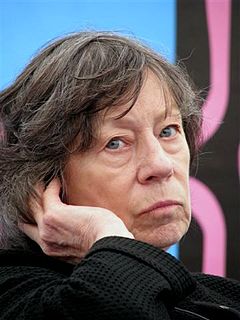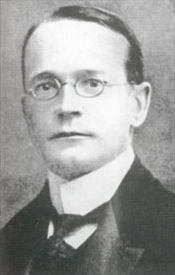A Quote by Barbara Bergmann
The liberation of women from exclusive domesticity did not originate in feminist books, or a war, or a big inflation, although they contributed to its progress. The rising enrollment of women in the paid labor force is a straightforward consequence of the industrial revolution of two hundred years ago.
Related Quotes
Ideas about mothers have swung historically with the roles of women. When women were needed to work the fields or shops, experts claimed that children didn't need them much. Mothers, who might be too soft and sentimental, could even be bad for children's character development. But when men left home during the Industrial Revolution to work elsewhere, women were "needed" at home. The cult of domesticity and motherhood became a virtue that kept women in their place.
One absolutely crucial change is that feminist film theory is today an academic subject to be studied and taught. "Visual Pleasure and Narrative Cinema" was a political intervention, primarily influenced by the Women's Liberation Movement and, in my specific case, a Women's Liberation study group, in which we read Freud and realised the usefulness of psychoanalytic theory for a feminist project.
Parents' work has shifted markedly around the world - and that goes for every region. Men in particular have been moving away from farmed-based work, and into industrial and post-industrial work - so they've moved away from the home. Women, likewise, have moved into the paid labor force and away from the home.
Between the postwar fifties - domesticity, people happy to be alive after the Second World War, wanting to build a home, make a family, make a nest. Women were pushed back into the home after having been active in the Second World War. It was a big Doris Day moment for women, which didn't suit all women.
The legacy of women's war work is our present post-industrial employment structure. It was the war that created the demand for a technologically advanced, de-skilled, low-paid, non-unionized female workforce and paved the way for making part-time work the norm for married women now. A generation later, it was the daughters of wartime women workers who completed their mothers' campaign for equal pay.
When you look at how men and women are living together, there are two processes at work. One, women are rising in the middle class; their earning potential is rising compared to men. It has been underway for 100 years, and nothing is going to stop it. On the other hand, women are denied iconic positions of power - equity partnerships law firms, Hollywood salaries.
With the Industrial Revolution, the production of food was delegated to big companies in order for women and men to be in the labour force, to come home, stick something in the oven, and eat. It became a big industry that does not have a love affair with food nor is really concerned about nurturing you or giving you the right nutrition.
At the beginning of my career, a more senior photographer told me to shoot stories on women and I didn't want to. But I spent two and a half years in India and chose to do stories about women because I was shocked by their treatment. My stories in the Middle East and on the border of Europe and Asia were a response to my time in India. They weren't driven by a feminist idea but when you're moved by women's issues in these countries you can't help becoming a feminist somehow.
Norman Mailer loved women so much. I mean probably more than anything in the world he loved women. He got put into a position where he was kind of seen as the anti-feminist, although he was for the feminist movement. He just didn't want people to get consumed with the idea that this was going to be much better. He said, "Look, women should be treated equally and fairly."





































